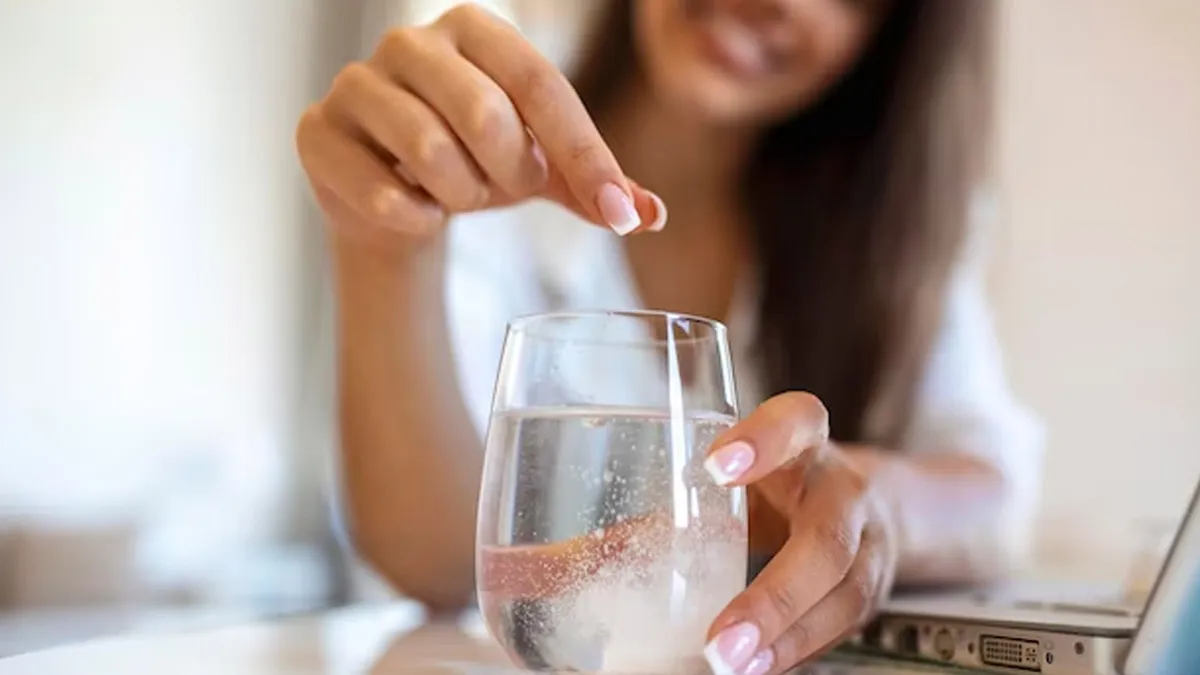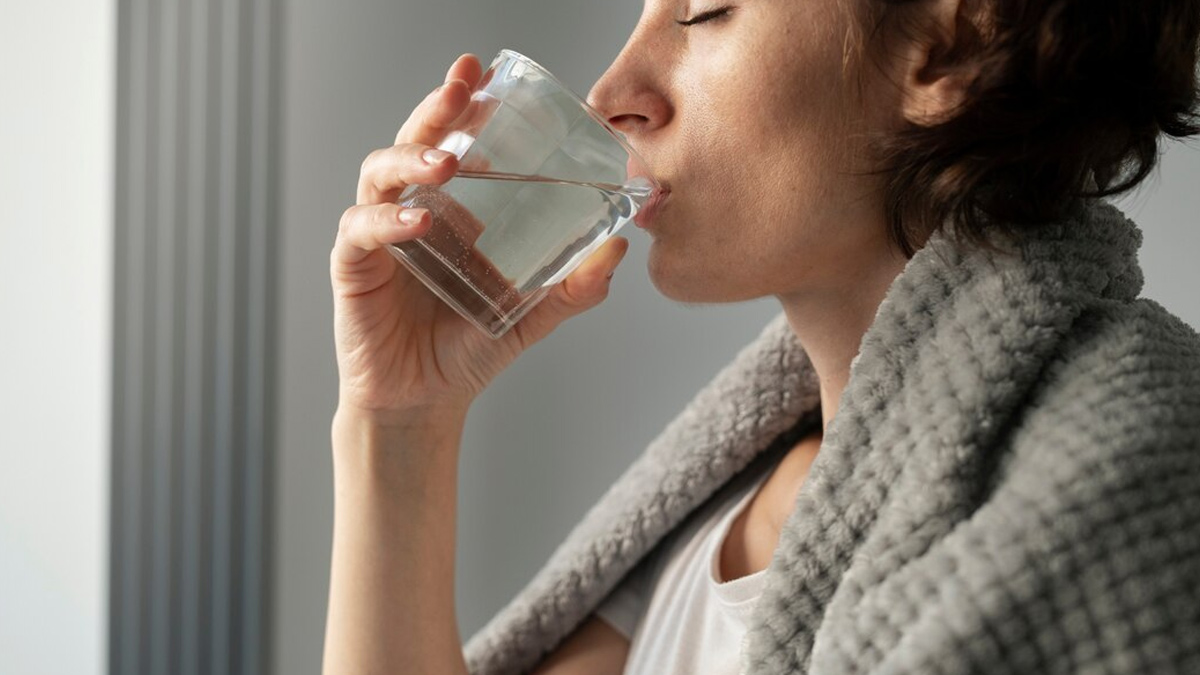
For years, we've been taught to drink water for good health, and it's true. However, recently experts have been suggesting that there is one easy way to get more out of every glass of water. We are talking about electrolytes, which are a group of vital minerals such as sodium, potassium, calcium, and magnesium, that have an electric charge when dissolved in liquid.
Table of Content:-
In an exclusive interaction with the editorial team of Onlymyhealth, our expert, Dr Pooja Pillai, Consultant – Physician and Diabetologist, Aster CMI Hospital, Bengaluru, explained that electrolytes are the spark plugs of our body and help form part of nearly every system. “When you put them in your water, you're not just having water, but actually powering a potent cellular reaction that dramatically enhances how your body acquires hydration,” she said.
Benefits of Adding Electrolyte To Your Water
Here's why Dr Pillai believes that electrolytes are a game-changer and why hydration should go beyond water for your health and performance:
1. They Drive Water Into Your Cells
The greatest single function of electrolytes is to regulate the balance of fluids within and outside the cells. Water tends to follow electrolytes, particularly sodium and chloride. Without proper levels of these charged minerals, water can't effectively transfer from your blood into your cells where it's necessary for essential functions.
“If you consume plain water after sweating, you are watering down your current electrolyte level. In fact, this can deceive your body into losing both water and electrolytes, thereby making your body increasingly dehydrated in extreme situations, that can result in low sodium levels (hyponatremia). Electrolytes make it possible for the water you consume to be absorbed and retained, not merely passed through,” Dr Pillai shared.

Also Read: Can Low Vitamin D Levels Cause Alopecia? Know From the Doctor
2. Increase Muscle and Nerve Function
Tired or suffered from a muscle spasm or twitch? Electrolyte imbalance may be the cause. These minerals are needed to carry the small electrical charges necessary for your nerves to transmit signals and your muscles to contract and relax.
Potassium and sodium combine to fuel the sodium-potassium pump, a basic process that preserves cell voltage and allows nerve signals.
Magnesium and calcium are essential for healthy muscle contraction and relaxation. Refilling these minerals, especially after a heavy, perspiring exercise, helps avoid embarrassing muscle cramps and enables quicker recovery.
3. Enhance Performance and Endurance
If your exercise takes more than an hour, or you're working out in warm, humid weather, good old-fashioned water just won't do. When you sweat, you lose a quantifiable amount of electrolytes, the biggest loss being sodium. Dr Pillai highlighted that electrolyte-enhanced water maintains your physical stamina by:
- Keeping Blood Volume: Electrolytes maintain the required amount of fluid within your blood so you can supply oxygen and nutrients to your functional muscles, as well as help your body regulate temperature.
- Holding Off Fatigue: As electrolytes deplete, you may find yourself impaired in your performance, thinking, and concentration. Topping them up keeps the fuel going for more prolonged periods.

4. Support Recovery from Illness
Vomiting, fever, and diarrhea are typical offenders of fast fluid and electrolyte loss. In such cases, your body requires more than water to get better. Electrolyte solutions, also known as oral rehydration solutions, are the best because they give your body the exact ratio of water, salt, and in some cases, sugar that it requires for fast rehydration and mineral replacement.
5. A Must for Day-to-Day Well-being
“Even if you're not an athlete, daily situations can drain your electrolytes. These situations may include a warm day, a night of partying and drinking alcohol, stress, or even the diuretic effect of coffee,” she said. Keeping this balance of minerals supports other important body functions, such as:
- Controlling Blood Pressure: Potassium, for example, counters the effects of sodium, which is helpful to maintain blood pressure within a healthy range.
- Balancing pH Levels: Electrolytes support the fine acid-base balance in your body, which is important for metabolic functions.
Bottomline
Electrolytes are essential minerals beyond what simple water can provide for best hydration. They assist our body in better absorbing, utilising, and retaining water, which is important for nerve function, muscle contraction, endurance energy, and avoiding dehydration, particularly during high-intensity exercise, illness, or heat exposure. Though not required daily for all, to put them into water is a good idea when your body is losing large amounts of fluid and salt through excess sweat, illness, or for sustained activity.
Also watch this video
FAQ
Q1: Do I need to drink electrolytes every day?
A: No, not everyone. An intact balanced diet with plenty of fruits, vegetables, and unprocessed foods generally yields sufficient electrolytes for everyday needs. Electrolyte beverages are of most value after prolonged and hard exercise (more than 60 minutes), excessive sweating in hot weather, or when recovering from illness with fluid loss (vomiting/diarrhea).Q2: Are all sports drinks the same as electrolyte drinks?
A: No. Although the old sports drinks do have electrolytes, they tend to be laden with added sugars and calories for energy. Current electrolyte powders, tablets, and drops tend to emphasize bringing the necessary minerals without added sugar or zero sugar, so they are more suitable for overall hydration without the added calories.Q3: What are some natural sources of electrolytes?
A: Wonderful natural sources are coconut water (potassium), milk (sodium, calcium, potassium), bananas and oranges (potassium), and even a dash of sea salt in your plain water (sodium, chloride) with a squeeze of citrus.
How we keep this article up to date:
We work with experts and keep a close eye on the latest in health and wellness. Whenever there is a new research or helpful information, we update our articles with accurate and useful advice.
Current Version
Oct 06, 2025 14:55 IST
Modified By : Tanya SrivastavaOct 06, 2025 14:55 IST
Published By : Vani Malik